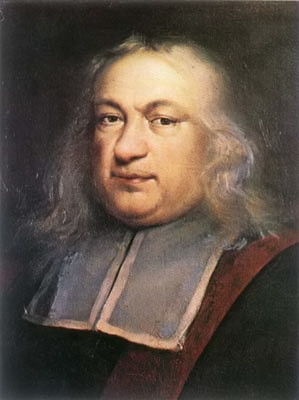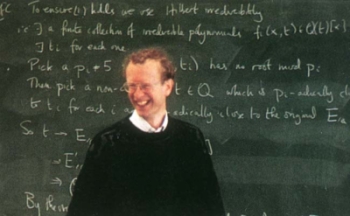Or search by topic
Number and algebra
Geometry and measure
Probability and statistics
Working mathematically
Advanced mathematics
For younger learners
What Does it Feel Like to Do Maths?
During a lesson at school, you might be shown worked examples and then asked to answer a dozen similar questions. As you are working, you rarely get stuck for very long, and when you do get stuck, your teacher can probably come to the rescue. But what happens when a mathematician is researching the very limits of humanity's mathematical understanding, and they get stuck?

Pierre de Fermat
In this documentary (available here if you live outside the UK), the mathematician Andrew Wiles talks about his personal experience of seeking a proof of Fermat's Last Theorem. He describes what it is like to do mathematics, to be creative, to have difficulties, to make mistakes, to persevere, to make progress, to have a dream and love what you are doing so much that you are willing to devote yourself to it for a long time. Of course, each mathematician's experience is different, and most mathematicians do not work alone for such prolonged periods without discussing their work with others, but much of Andrew Wiles' experience is shared amongst mathematicians, and reminds us of the rewards of perseverance in the face of difficulty.

Andrew Wiles
We really like the Plus interview Andrew Wiles: What does it feel like to do maths? because it is great to hear a great mathematician compare his experiences of being stuck with the everyday experience of children struggling on maths problems in school.
If you would like to challenge yourself and see how you cope when you get stuck, take a look at our Being Resilient - Upper Primary or Being Resilient - Secondary problems.

